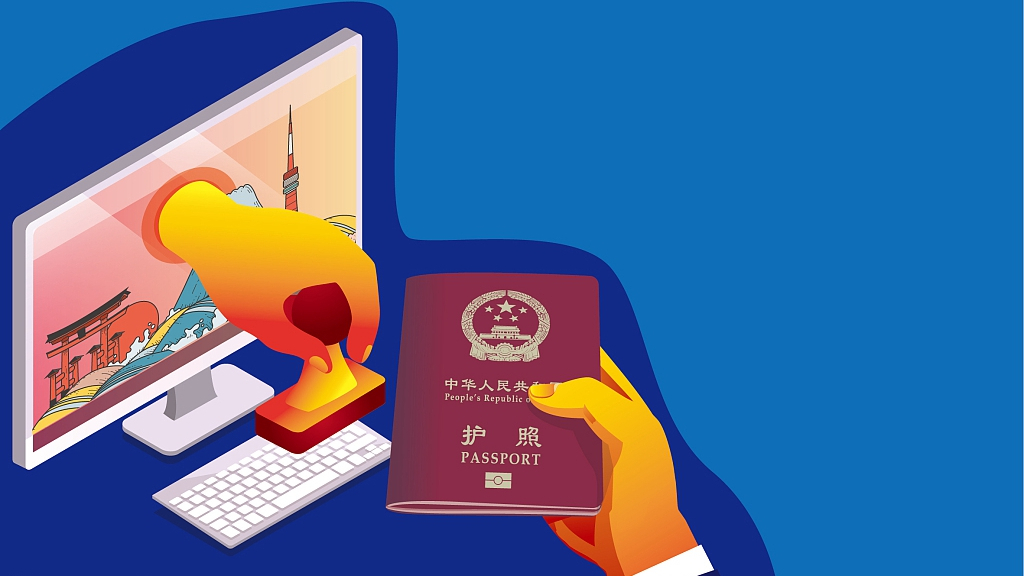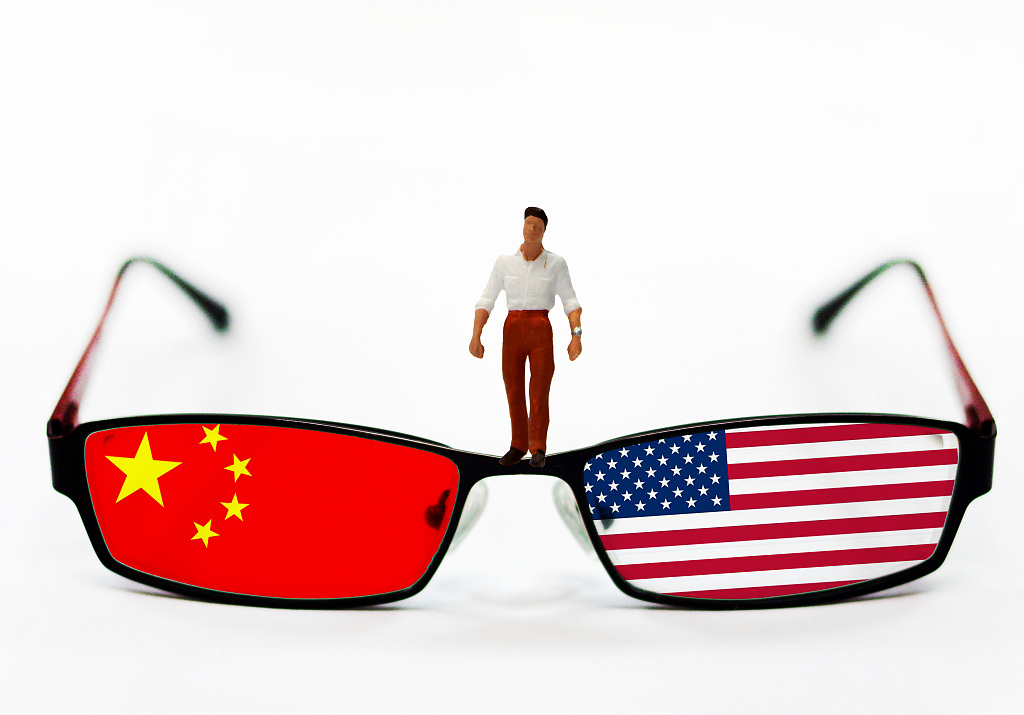
The U.S. Department of State announced on October 16 new restrictions on the activities of Chinese diplomats stationed within the country. /VCG Photo
The U.S. Department of State announced on October 16 new restrictions on the activities of Chinese diplomats stationed within the country. /VCG Photo
Editor's Note: Tom Fowdy is a British political and international relations analyst and a graduate of Durham and Oxford universities. He writes on topics pertaining to China, the DPRK, Britain, and the United States. The article reflects the author's opinion, and not necessarily the views of CGTN.
On Wednesday evening, the U.S. Department of State imposed new restrictions on the activities of Chinese diplomats stationed within the country, stipulating that they must now seek "approval" for any meetings with the state, local and municipal level officials, as well as research and educational institutions. The department accordingly reserves the right to deny such meetings. It claims that the move is "unrelated" to the current trajectory of U.S.-China relations, and that it is aimed at establishing "reciprocity" for how U.S. diplomats are dealt with in China.
The Chinese embassy in the United States has criticized the move as a violation of the 1961 Vienna Convention on Diplomatic Relations, insisting that China itself does not pose such measures on U.S. diplomats, not least at the same level as to what Washington is proposing now. Of course, this policy should not be taken at face value. Instead, it is a direct product of the growing climate of paranoia and hysteria which has engulfed Washington concerning China.
Seeking to forcefully decouple the two countries, American officials are now effectively using this move to pursue a systematic effort to now isolate the country from U.S. institutional life and make it harder for such organizations to build ties with Beijing.
The U.S. has a long history of restricting the activities of diplomats from countries it deems hostile in a disproportionate and draconian way, unparalleled in any other democracy and even more extensive than some authoritarian governments themselves. For example, only a month ago, the U.S. imposed harsh travel restrictions on Iranian diplomats and their families working at the United Nations in New York, stipulating that they may only transit between the country's mission, the ambassador's residence and the airport. DPRK diplomats are also subject to similar rules, and may not leave the proximity of central Manhattan except to the airport.

In formulating these rules, the common assumptions are that the diplomats in question will resort to hostile pursuits usually based around heightened paranoia of "technology theft" or other "intelligence" or "influence" activities.
With the latest development, the way things have gone with China and the U.S. has provided an inevitable context. Unleashed by Trump, for the past year, there has been an all-embracing hysteria sweeping Washington, DC, concerning Beijing, with all things China related being accused in an irrational and opportunistic manner of espionage, technology theft and more. Hawkish congressmen and officials have moved to try to break and entangle every stable element of the China-U.S. relationship in a very aggressive way.
Given this background, the claim that Washington is simply demanding "reciprocity" from China in terms of diplomatic access does not reflect the true reasoning behind it.
Whilst one must acknowledge that Beijing has its own legitimate security concerns about the activities of U.S. diplomats in its country, one may note that the U.S. demands extend further than what China has imposed on American officials, and for differing reasons. For example, there has been no bid by Beijing to restrict access to educational or academic institutions, and China has been much more open to engagements and exchanges.
Thus, this has been done by the U.S. as part of its broader "technology war" effort against China which has sought to forcefully pressure American universities to cut ties with the country.
From here, this builds into the wider agenda of "decoupling" which Washington is pursuing. In demanding all states, local governments and universities declare and seek direct approval for their meetings, the U.S. wants to put these organizations under the spotlight for "associating" with China, track their activities, raise the costs for formulating official ties and in turn make it stigmatic and penalizing to do so, thus making it easier to reverse them. For example, if let's say California wants to formulate economic ties with China and thus seeks diplomatic meetings, the state department now has greater levels of leverage to publicly vilify this and stop it.
Given this, we should anticipate the new regulation to be used quite actively. Any meeting which is meaningful or perceived to be advancing ties between a specific institution or area of America with China is likely to be denied. Thus as a whole, America's agenda is obvious: it is again about severing ties with Beijing in a destructive and counterproductive way. As China will obviously respond to this, the outcome marks yet another move in the deterioration of official relations which will bare negative consequences.
Washington is continuing to build walls and burn bridges. It must come to its senses concerning China's role in the present world, seek stability and stop riding upon the nostalgia of unilateralism.
(If you want to contribute and have specific expertise, please contact us at opinions@cgtn.com.)